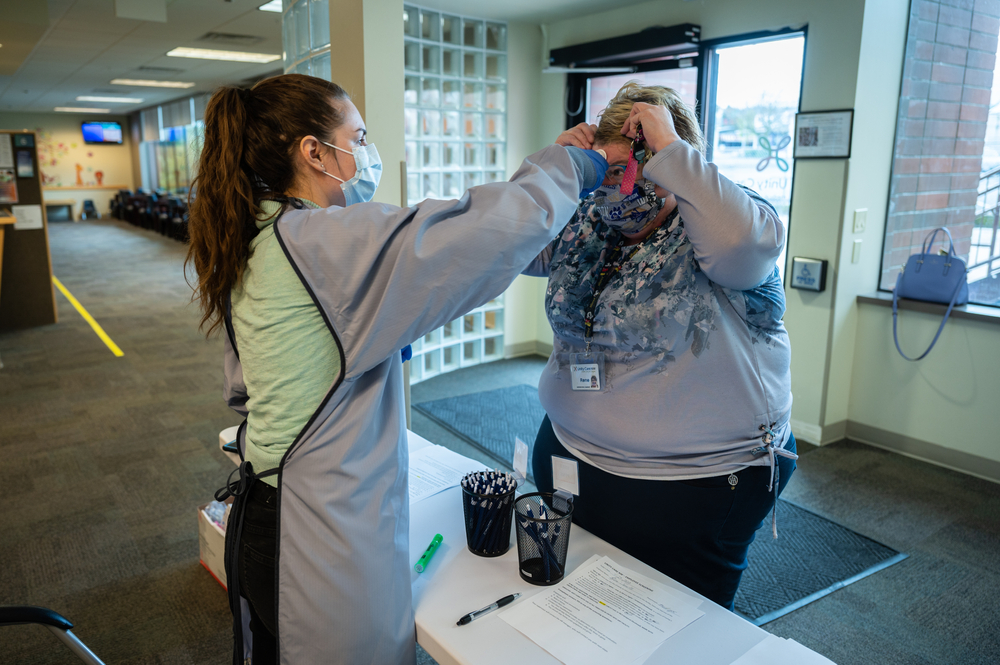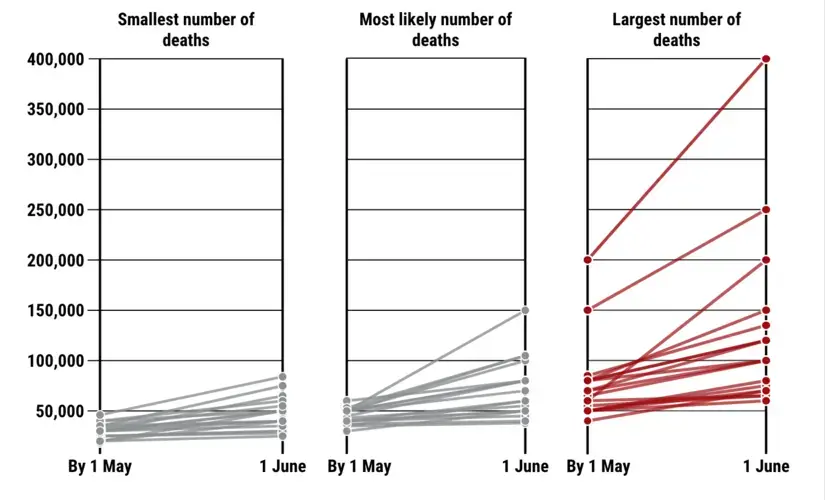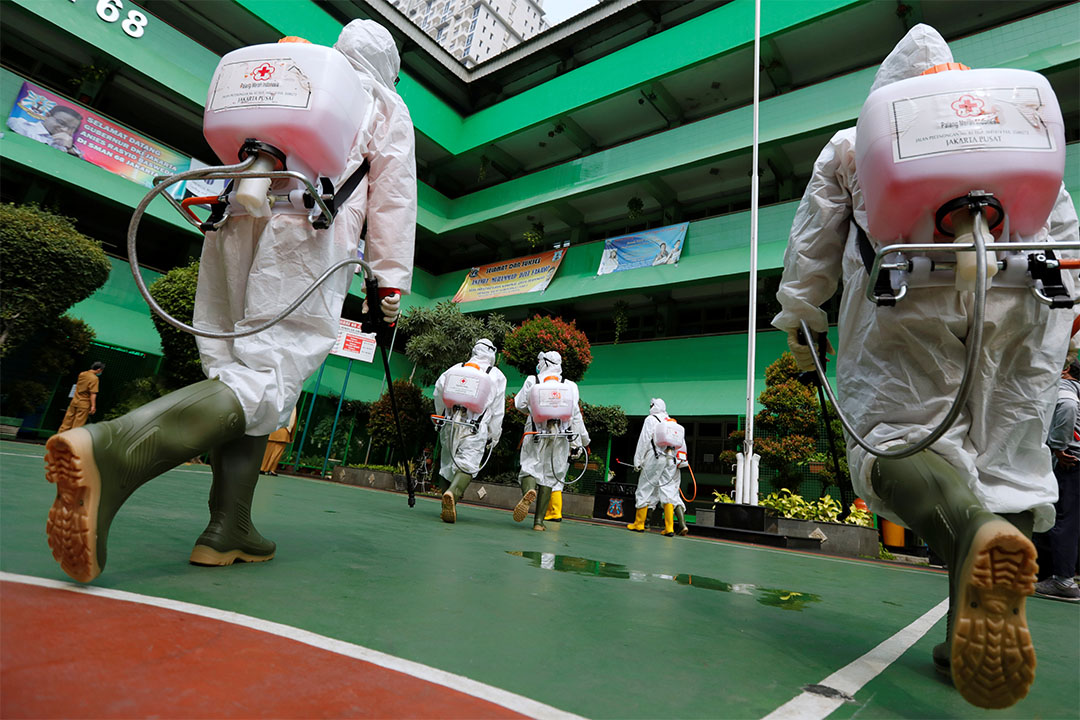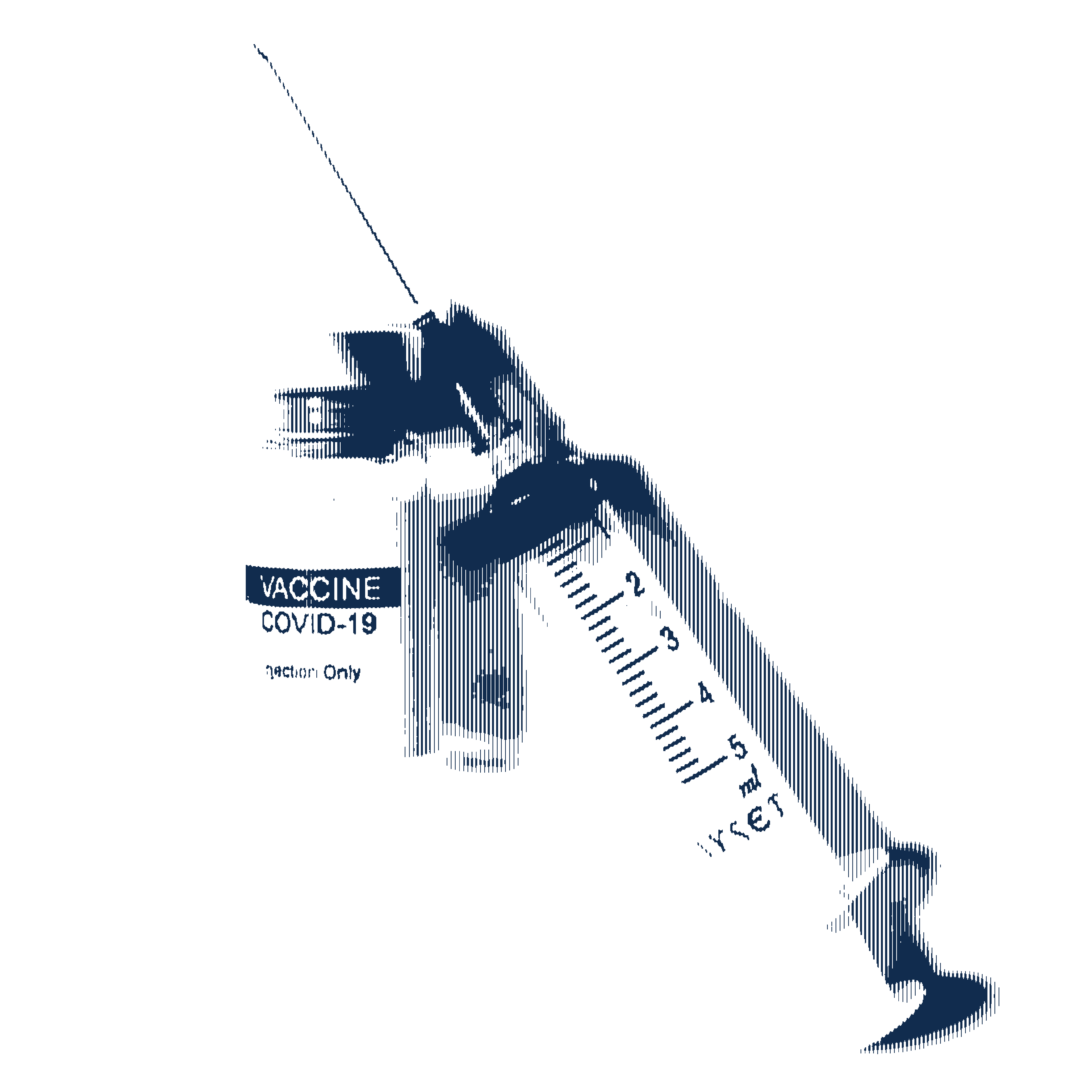
Statistical models of infectious disease are vital for understanding where the COVID-19 pandemic is headed. But their predictive power can be limited by sparse data and rapidly changing circumstances.
A useful complement to numerical models is forecasts made by experts using their informed judgment, says Tom McAndrew, a biostatistics postdoctoral researcher at the University of Massachusetts, Amherst. Each week since February, he and his faculty adviser, Nicholas Reich, have been surveying about 20 experts in public health and infectious disease, asking for their best estimates of future COVID-19 cases, hospitalizations, and deaths.
In last week’s survey, the specialists predicted that total U.S. deaths from COVID-19 will rise substantially in coming weeks; on average, they estimated that in the most likely scenario, the number of deaths will reach 45,157 on 1 May and 74,631 on 1 June.
The experts’ understanding of the dynamics of disease outbreaks informs their estimates, McAndrew says, much as weather forecasters craft predictions based on data and experience.
An inspiration for the effort is the Good Judgment Project, launched by psychologists at the University of Pennsylvania in 2011. It studied ways to improve forecasting using crowdsourcing; its team won competitions sponsored by an organization funded by U.S. spy agencies—the U.S. Intelligence Advanced Research Projects Activity—to accurately predict geopolitical events, such as the likelihood of chemical weapons inspections in Syria. The project “ended up identifying ‘superforecasters,’ those who had an uncanny ability to make very accurate predictions,” McAndrew says.
He notes that, in the first surveys of disease experts he conducted, the consensus predictions of the number of confirmed U.S. cases were lower than those actually reported later. But as the pandemic has expanded, McAndrew says, the forecasts made by the experts have become increasingly accurate.
On a hopeful note, the group forecasted last week that the United States will reach its peak number of monthly deaths no later than April.
Judgment calls
In a survey last week, 19 disease modelers offered a range of estimates for future COVID-19 death totals in the United States.

COVID-19 Update: The connection between local and global issues–the Pulitzer Center's long standing mantra–has, sadly, never been more evident. We are uniquely positioned to serve the journalists, news media organizations, schools, and universities we partner with by continuing to advance our core mission: enabling great journalism and education about underreported and systemic issues that resonate now–and continue to have relevance in times ahead. We believe that this is a moment for decisive action. Learn more about the steps we are taking.











